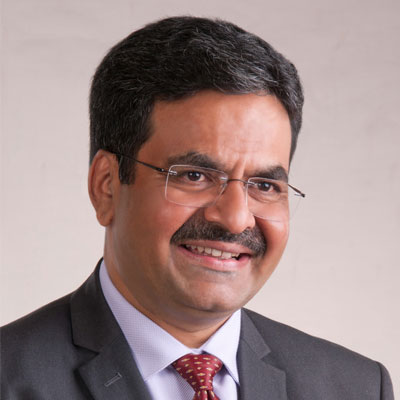How many of you know that only 1 out of 250 men get diagnosed with testicular cancer in their lifetime? This is indicative that testicular cancer is rare.
But do you know how many myths are spread regarding this type of cancer?
There are too many to count. Despite being a rare, yet treatable form of cancer, many myths about testicular cancer continue to persist, leading to confusion and delayed diagnoses.
This blog has addressed the common myths and misconceptions about testicular cancer. Now let's dive in and get your myths busted.
What is Testicular Cancer?
Testicular cancer is a cancer type that starts in the testicles, which are the male reproductive glands that produce sperm and testosterone. It develops in one or both testicles and can spread to other body parts if left untreated.
Treatment options for testicular cancer may include surgery, radiation therapy, chemotherapy, or a combination.
Myths About Testicular Cancer
Myth 1: Testicular cancer affects only older men.
In general, older people do tend to get affected by cancer. Because over time, the cells in our body get damaged, and other external factors can affect the body and cause cancer as you age.
But this is exactly the opposite with testicular cancer.
Teens and young adults between ages 25 and 40 are more likely to get affected by testicular cancer. Besides this, the disease is extremely rare during prepuberty, and its frequency declines after the age of 50.
Myth 2: Injuring the testicles increases the chances of testicular cancer.
Most people assume that injuring the testicles increase the chances of testicular cancer. This is false.
People assume things because they lack awareness about the exact causes of testicular cancer. There are a few risk factors for testicular cancer, but none of them are related to injury. So, don’t assume that injuring the testicles can increase the chance of testicular cancer.
Genetics is a big factor in determining whether you are at risk of testicular cancer. If there is a history of testicular cancer in your family, you are more likely to develop it.
Another important risk factor is developmental abnormality. Here, one or both testes fail to descend into the scrotum, which happens around the time of birth. Fortunately, by treating this condition in early childhood, the likelihood of developing testicular cancer can be drastically reduced.
Myth 3: It's not possible to have children after testicular cancer.
This is both right and wrong.
We all know sperm is made in the testicles, and men of childbearing age may be concerned that cancer will impact fertility.
It is true that cancer treatments like surgery can damage and cause problems for the testicle that did not have cancer, which could affect fertility. And chemotherapy and radiotherapy can affect sperm rate.
However, over a period of time, the affected testicle can recover and the sperm rate may also slowly increase till it reaches the pre-treatment count.
So yes, chances of conceiving a child naturally decrease after testicular cancer, but it is not 0. It is still possible to conceive a child naturally.
There is also always the option of banking your sperm before starting this treatment. So, this allows you to have children even if you become infertile. There is also the option of adopting a child.
Another big misconception is that men think their sex life will suffer if they get testicular cancer.
The fact is that post-treatment, men may have sex and orgasm just as they did before treatment. Because only the affected testicle is removed during treatment. So, the other testicle could possibly make enough testosterone to maintain normal erections.
Myth 4: Testicular cancer can be hard to treat.
The word "cancer" brings to mind a dreaded and hard-to-treat disease. And it is true that certain cancers can be treated only to a certain extent. But again, testicular cancer is rare and has a whooping cure rate of more than 95%. Whether it is diagnosed in the early stage or at the later stage, this type of cancer is highly curable. Remember though, the earlier it is detected, the better the outcome.
This is why it is important to seek medical attention if you are experiencing symptoms of testicular cancer.
Some common symptoms of testicular cancer are:
- A painless lump in either testicle
- Discomfort or pain in the testicle or scrotum
- Slight pain in the groin
- Swelling in either testicle
- A sudden buildup of fluid in the scrotum
If you notice any lumps in your testicles or any of the above-given symptoms, you must contact a doctor immediately.
It is recommended that men should perform a self-exam once a month to look for any changes in the testicles. Self-examining your testicles is also an important way of detecting the signs of testicular cancer early.
-
How Is Testicular Cancer Diagnosed?
Read about the different methods of diagnosis for testicular cancer including self-exam, physical exams, imaging tests, and blood tumor markers.
Read More
If you suspect that you have the symptoms of testicular cancer, you can contact Dr. Ashit Shah, a senior consultant urologist heading Aashray Urology Institute, Vadodara.
Dr. Shah has been in the field of Urology for more than 20 years and has successfully treated numerous cases of testicular cancer. He and his team have years of experience in this field and provide comprehensive care for their patients.
In particular, Aashray Urology Institute is a state-of-the-art hospital dedicated to urology, setting a benchmark in providing quality urocare and total patient satisfaction. So, if you or someone you know is suffering from testicular cancer, do not hesitate to seek Dr. Shah’s help.



